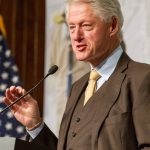The recent decision by the Virginia Supreme Court has sent shockwaves through the political landscape, and for once, many conservatives are cheering from the rooftops. In what can only be described as a monumental win for election integrity, the court has put the brakes on a lower court’s ruling that attempted to reinstate 1,600 non-citizen voters back onto Virginia’s voter rolls. It seems like a no-brainer, but in today’s political climate, celebrating the fact that non-citizens won’t be voting feels like popping champagne for some wild miracle.
So, how did we end up in a place where we needed the Supreme Court to remind us that illegal aliens should not cast votes in American elections? While folks across the nation were preparing for the upcoming elections, some bright ideas decided that letting non-citizens influence our democratic process was a good idea. Who knew citizenship would be such a minor detail when it comes to voting? The discussion has now shifted—who needs to show proof of citizenship when the allure of a massive voting bloc is on the table? The left’s goal of re-stacking the deck becomes clearer in such moments.
As Sunday morning cartoons teach kids about being responsible and following rules, one would wonder if some justices took a snooze during their civics classes or if they mistakenly got their constitutions mixed up with their grocery lists. It’s hard to fathom how three court members could think that allowing anyone, regardless of legal status, to vote is wise. The case wasn’t just about the 1,600 problematic registrations; it ignites a foundational question: Who qualifies as a voter in this country? The Constitution sides with the people of Virginia, and thankfully, the Supreme Court chose to uphold that principle—this time.
Virginia’s Governor Glenn Youngkin led the charge and wasted no time labeling the ruling as a victory for common sense. He emphasized that protecting American citizens’ rights isn’t merely a political stance but a fundamental one. The Department of Justice had tried to argue that this removal of non-citizens violated some obscure “quiet period” law, leaving many scratching their heads. If you think about it, if proof of citizenship is too much to ask, maybe they should re-evaluate their approach to the voter rolls altogether. The DMV might be a hassle, but it’s a pretty reasonable ask to show you belong here before influencing governance.
But let’s take a moment to fast forward and imagine a world where anyone from any country can roll in, vote, and poof—zip in and out of the electoral process without a hitch. Is that the America we want? Maybe next, they’ll suggest that as long as someone can breathe and push a button, they should get to weigh in on tax law or healthcare policy. The implications of this decision extend far beyond Virginia. It sets a crucial precedent for other states pondering similar voter integrity measures, proving that citizenship matters—no ifs, ands, or buts about it.
So, as the applause fades and the dust settles from this latest chapter in the ongoing saga of American politics, it’s clear that alarms are starting to ring louder about safeguarding elections. The decision is not just a win for Virginia; it stands as a wake-up call for common-sense governance nationwide. The right to vote is sacred, and it’s high time everyone remembers why safeguarding it against outside interference—like from those whose only claim is “I’m here”—is necessary. Or maybe, just maybe, they should consider how ridiculous it is to jeopardize our democracy before giving a thumbs up or down at the ballot box.




